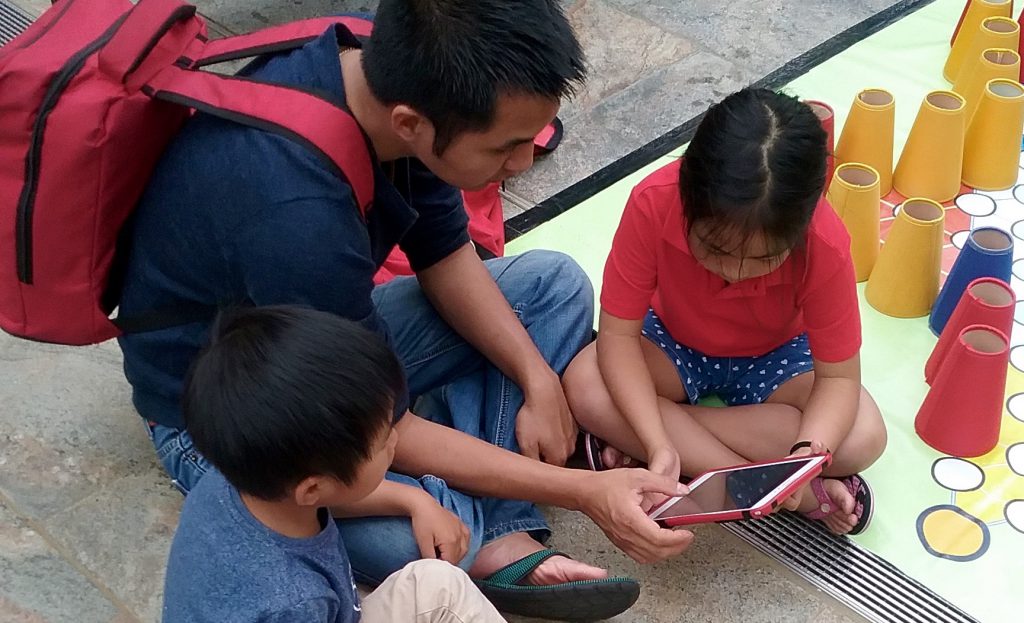Despite its many benefits, intercept interviewing can seem daunting and resource draining. So, we called in our resident field research expert Clare Chappell to share her insights into the pros and cons of fieldwork using tablet-based surveys.
The case for fieldwork
Performing intercept interviews allows you to capture feedback from people immediately, during or just after they have had an experience. It allows the sentiments of your audiences to be captured in real time, when memories and emotional responses are particularly accessible. The result is survey responses that are rich with quality and accuracy – something that is invaluable when collecting primary data.
People are willing and generous with their feedback
When done correctly, the presence of an interview team interacting directly with audiences will make respondents feel their opinion is needed. When our interview team is interacting with audiences it is our responsibility to help them feel valued. When done right, people respond openly and willingly. This is particularly true when respondents become aware that collecting event experience data is often vital to secure future funding, and when they understand that genuine constructive feedback is crucial to future continued success.
It’s a win-win. Your audience feels engaged and heard, and you get the best data.
You can capture elusive audiences
Often conducting fieldwork is a way to capture feedback from a broad range of people, who you may not have had the details or means to contact afterwards. It can help ensure you receive responses that represent the diversity of your audience. You can take this one step further and include a question inviting survey respondents to join your mailing list, maintaining contact for the next event and growing a relationship with your audience.
You gain a better sense of the audience sentiment as a whole
Finally, direct engagement with audiences means that interviewers gain a richer understanding of the event as a whole. The intercept team spends approximately three hours interacting with an audience, allowing us to provide extra and detailed feedback to our clients regarding the successes and possible improvements for the event.
The challenges of fieldwork
Despite the benefits, intercept interviewing does present particular challenges. The three we’ll be focusing on are finding the right interviewers, the perils of technology and working within time constraints.
Having the right team members is crucial
Finding the right people to conduct the intercept interviews can make or break your data collection. A good intercept interviewer requires the following attributes; friendly, personable, motivated, perceptive and available. Not everyone is comfortable walking up to complete strangers and asking them to give them 3-4 minutes of their time. However, overtime our interviewers gain both the necessary skills and confidence in how to approach and secure interviews.
Remember, this isn’t solely the responsibility of the interviewer – as the Field Supervisor, it’s my job to empower my team members to feel comfortable and professional about the way to approach audience members. It’s about making the potential survey responder feel like they are valued. Which of course they are.
You are only as good as your technology
Culture Counts surveys sit online and that means that having some form of technology is an obvious requirement. This can understandably pose a resourcing issue, though having a bank of tablets doesn’t automatically mean you need to shell out thousands of dollars in one go.
Over the past four years, we have found the Samsung Tab A 8.0 to be a well-priced & reliable tablet. We organise our tablets through Telstra on a 24 month hire purchase deal which has data included. The cost of the tablet is spread over the 2 years in monthly instalments. The total price paid over that time is equivalent to the outright purchase of the tablet.
These tablets are a good size, affordable & are very reliable. We would always recommend using a heavy-duty tablet case to prevent breakages.
There are obvious benefits in using a tablet to collect audience feedback over manual data entry of completed paper surveys:
- The data entry is completed immediately by the audience member
- No extra cost for data entry
- Complied results and reports are available immediately
- Results are more accurate – no interpretation error
You’re on the clock
We generally spend three hours collecting intercept interviews at an event, though sometimes there’s even less time to gather responses. When time is a challenge, we recommend tasking your team with collecting email addresses to send the survey out to. This can be necessary when the audience are going to depart an event quickly and there is limited time to collect a full survey response. A prize incentive can be won by a member of the audience who provides their email address, with the understanding they will receive and complete a survey regarding the event they have just attended.
Adding in a prize incentive will boost the survey response rate significantly, but it isn’t always necessary.
As we continue to engage our audiences in research, intercept interviews remain a particularly robust method of acquiring research participants and providing useful data. The advantages usually outweigh the challenges; however, it is nonetheless useful to be aware of the challenges and ways in which to mitigate them.
If you have further questions, get in touch with Culture Counts support@marketing.dev.culturecounts.cc and we can help you establish the best distribution method for gathering your research. Read more about distribution methods in our cheat sheet.
Decided you’d like to conduct intercept interviews? Read up on more of Clare’s tips for success.







